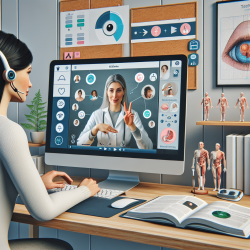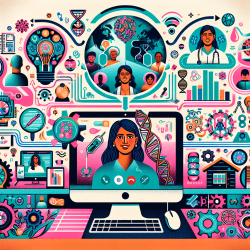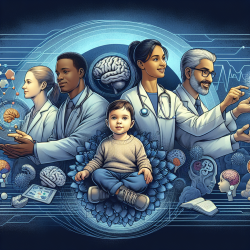Key Findings
The study analyzed responses from 170 participants, including SLPs, phoniatricians, otolaryngologists, medical students, and SLP students. Here are some key findings:- Professionals showed greater familiarity with digital learning tools than with eHealth concepts.
- SLPs were more familiar with digital therapy tools compared to physicians and medical students.
- Generational differences indicated that younger participants were less familiar with digital health terminology but more open to using digital tools if they were medically certified.
- Respondents expressed concerns about technical difficulties, quality, and data privacy.
Practical Applications
To enhance your skills and adapt to the digital landscape, consider the following strategies:
- Increase Familiarity: Engage in professional development courses that focus on digital health and eHealth concepts.
- Use Digital Tools: Incorporate digital therapy tools such as apps, computer programs, and teletherapy platforms into your practice. Tools like Neolexon, Lexico, and Metatalk were frequently mentioned in the study.
- Address Concerns: Stay informed about the quality and validity of digital tools. Utilize medically certified products to ensure reliability.
- Interactive Learning: Embrace interactive digital formats such as virtual reality and simulations for both learning and therapeutic purposes.
Encouraging Further Research
While the study provides valuable insights, it also highlights the need for deeper empirical investigation into the efficacy and acceptance of digital learning and practice strategies. Engaging in further research will help optimize the integration of digital skills into clinical education and professional development.
To read the original research paper, please follow this link: Digital Health and Digital Learning Experiences Across Speech-Language Pathology, Phoniatrics, and Otolaryngology: Interdisciplinary Survey Study.










